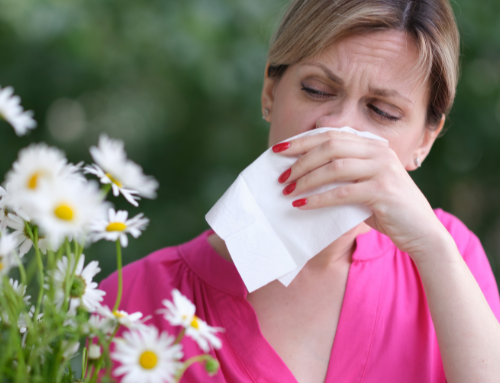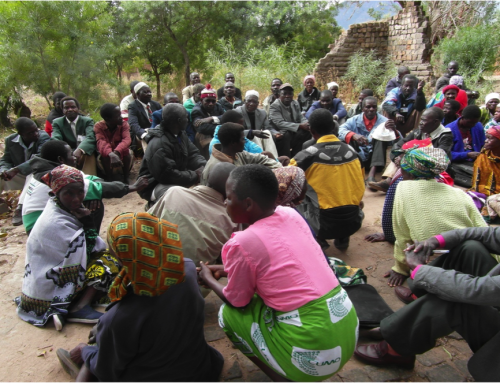
Post-COVID Complications
Like all viral or bacterial infections, COVID-19 can leave some people with long-term health complications. While there is a greater risk this could happen in those who already have co-morbidities, anyone can experience post-viral syndrome. Early studies are indicating 1 in 6 people will have complications post infection of COVID. Another study revealed that 87% of patients who have “recovered” from COVID still had one persistent symptom.
The long-term symptoms include:
- Fatigue
- Headaches
- Brain fog
- Difficulty concentrating
- Vertigo
- Difficulties with cognition
- Abnormalities of the sleep/wake cycle
- Hair loss
- Cardiac issues – myocardial damage, cardiomyopathy, arrhythmias, stroke
- Diminished cardiorespiratory fitness
- Difficulty breathing
- Joint pain
To understand the symptoms a holistic perspective of body functions actually helps. Many would think that if they have brain fog, joint pain and breathlessness that these symptoms are unrelated. One is happening in the brain, another in joints and yet another the respiratory system. Yet the three core theories to explain post-viral syndrome are systemic in their actions:
- Inflammation
- Mitochondrial Function/Dysfunction
- Lymphatic System
During the height of the media coverage about what COVID was and how it was impacting people we heard a great deal about ‘the cytokine storm.’ The immune system has numerous cells that perform specific functions in relation to illness. A cytokine is a signalling molecule – it communicates with other immune cells passing on information. It is the messenger. In a cytokine storm, there are more cytokine cells circulating than usual, or even is healthy, and so immune cells are getting more messages to take action than is proportional to the situation inside the body.
When we think of inflammation we often think of the pH of the body and acidic and alkalising foods. And while this is true it is only one part of the concept of inflammation in the body. Where there is a bacterial or viral illness there will be a change in pH that supports the infection. Changing the pH does interfere with the survivability of an infection.
But inflammation is also associated with injury such as spraining a wrist or ankle. In this scenario heat, pain and loss of movement isolate the problem and the immune system responds by releasing immune cells called macrophages to clean up the injury site. What many people may not be aware of is the inflammation that is created from stress, excess adrenaline, and grief. In the body the immune system is activated and with no physical properties to attack – there is no injury site, no bacteria and no viruses – the immune system attacks itself. This is the basis of autoimmune disease. Now what must be understood is that in some people the immune system is slow to turn off and where there has been an injury or an infection that has been dealt with but there are still messages being sent to immune cells to keep on acting they will then attack the body.
Genetically, our ability to manage our immune system effectively is determined by our genes. The deeper answer as to why one person could have COVID and fully recover with no long-term impact and another not recover and end up with long-term symptoms lays in their genetic make-up. Specifically, the genes that indicate their ability to manage pro-inflammatory cytokines (IL-6, IL-8, IL-18, IL-1a, CRP, COX and TNF-a). IL-10 is an anti-inflammatory cytokine that helps to regulate the pro-inflammatory cytokines and its function is improved by probiotics. Note, it is not recommended that people take probiotics if they have a pH imbalance though. Fix the pH imbalance first and then take a probiotic
Every cell in our body has a mitochondria within it. The role of the mitochondria is to make our energy hence its association with fatigue. The mitochondria is very sensitive to pH, cellular oxygen, toxic load, and viral and bacterial infections. It is easy to understand that if the mitochondria isn’t functioning efficiently then the whole body is affected. Inflammation impacts on the mitochondria. Genetically, there are specific genes that indicate a person’s ability to protect the mitochondria (MnSOD, GPX1 and CAT). The mitochondria is especially vulnerable to free radicals which are increased in states of inflammation and at times of infection and needs antioxidants to protect it.
The lymphatic system has no pump of its own. It depends on movement to move the lymph and therefore can become congested very easily in people with a sedentary lifestyle. The immune system lives inside the lymphatic system in lymph nodes. Our fat soluble vitamins and fats are transported back to the liver from the small intestine for processing through the lymphatic system. Where the lymph flow is impaired it has been suggested that proper removal of toxic waste and debris leads to an accumulation of pro-inflammatory compounds creating symptoms, especially in the brain, post a COVID infection.
In our scientific driven society there is great value in knowing your genetic vulnerabilities but we can’t forget the role that healthy choices in our diet, lifestyle and mindset play in our overall health. Prevention is always better than trying to fix major diseases after diagnoses. Once co-morbidities are present all attempts to reverse them has to be encouraged. Interestingly, the actions taken to improve health are also what will improve our gene function and assist in preventing contracting illnesses like COVID and increase our chances to fully recover in the first place.
A healthy diet that consists of 80% alkalising foods and 20% acid-forming foods be that paleo or keto based diets are a good start. Making sure your diet has plenty of vegetables and no more than two pieces of fruit but high in antioxidants is important. Once your body has a balanced pH and lowered inflammatory load in the gut the regular use of a good quality probiotic (Lactobacillus rhamnosus, casei, and reuteri are preferred over acidophilus at this stage) supports your immune response. The regular use of herbs to enhance the function of the immune system cannot be overstated. Current research has identified specific herbs that are invaluable – Astragalus, Andrographis, Olive Leaf extract, and Shiitake Mushroom. The role of the B Vitamins, Magnesium, and CoQ10 in mitochondria function should be considered for any issue of fatigue. And of course, getting outside in nature, breathing in fresh air, exercising, moving the body, laughing and maintaining nurturing relationships with humans, pets and nature is good for the soul not just the mind and body.
Former AHHCA President, Leonie Blackwell is a well respected Naturopath who has practiced for over 27 years in Drouin, Vic. A great way to find out more about Leonie and her business is to visit her Facebook page https://www.facebook.com/drouinnaturopath






Leave A Comment